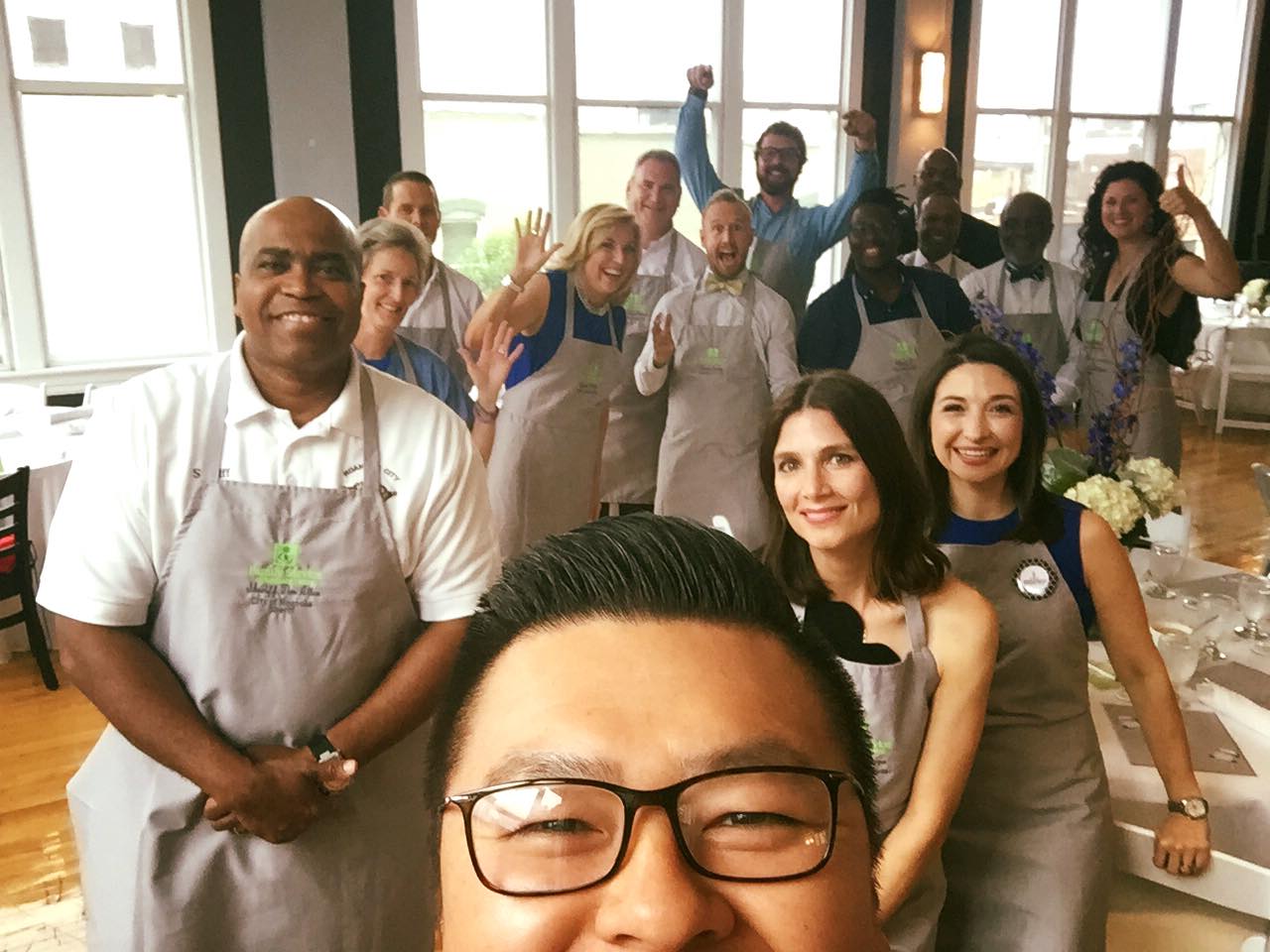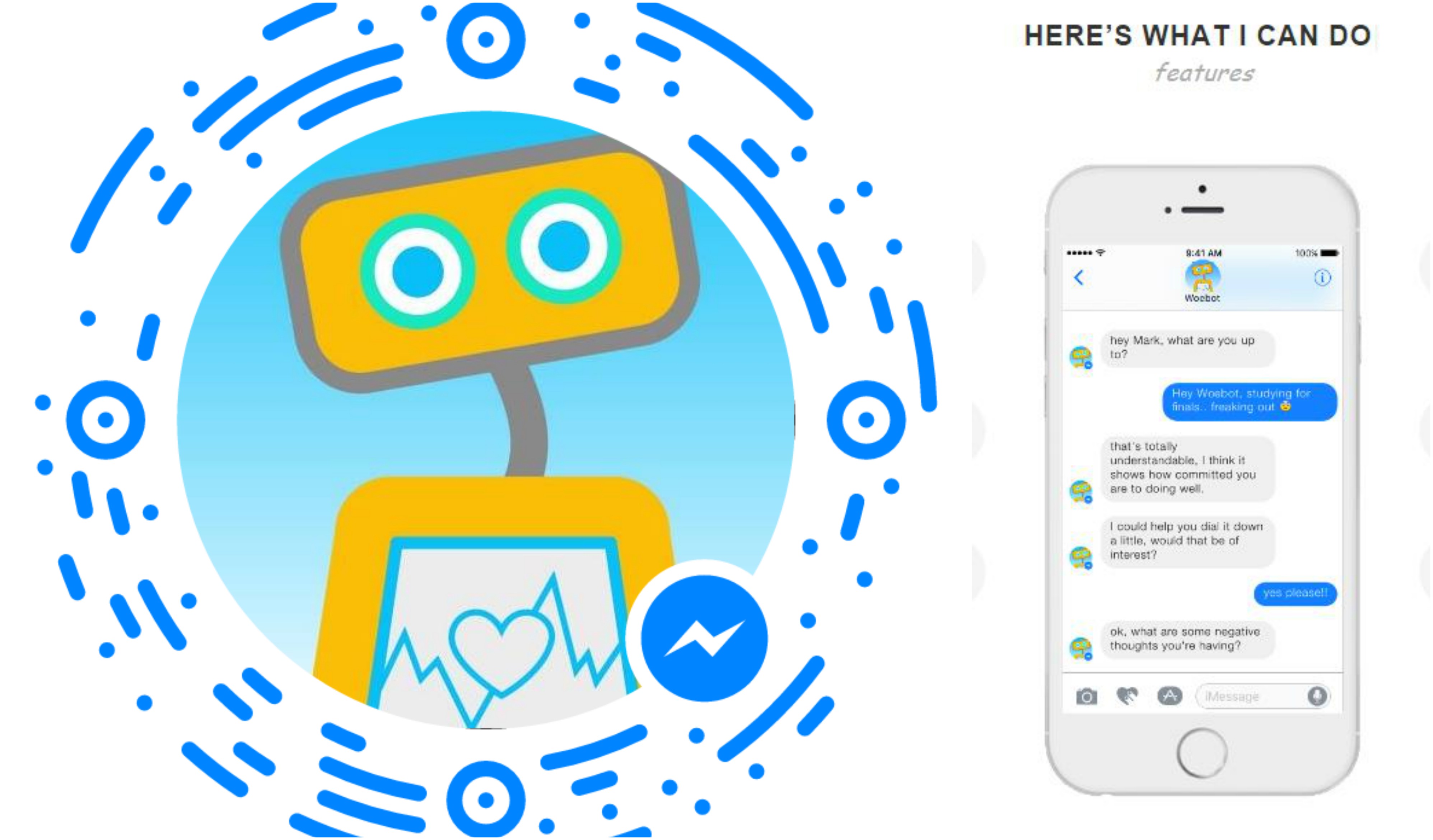
“Hi Tyler! Can we do a check in now?” Woebot has been asking me that question every single day in Facebook’s Messenger app since June. For those unfamiliar with Woebot, it is an automated conversational agent that is “trained” in Cognitive Behavior Therapy (CBT) and describes itself as a life coach and philosopher. So to answer the question I know you have: yes, Woebot is an AI chatbot. Very insightful of you.
From text alerts all the way to video chatting and texting a counselor, technology has been working its way in to mental health for a long time. Even Family Service is jumping on board (we want to do things like send text appointment reminders in the future). But an AI CBT trained chatbot? I just had to check it out.

Woebot has been tracking my mood (above), helping me with gratitude journaling, and giving me a bit of education on some interesting topics like:
All or nothing thinking
Should statementsAnd their partner in crime: hidden should statements
Fortune tellingSMART goalsPersonal strengthsIdentifying distortions in my thinkingGrowth mindsetFix mindset and self-fulfilling propheciesDecision making skills
Fascinating, right? We even discussed why I say I’m tired so much. As it turns out, coffee at 4pm is not doing me any favors. Neither is looking at my phone while in bed. I’m definitely not on Pinterest (to be read as: I’m definitely on Pinterest. At midnight. On any given day of the week).
While learning all of those important life aspects has been beneficial, Woebot has a few major drawbacks a well.
Woebot doesn’t have the ability to really have a conversation with me. So when I say “discussed,” I really mean it spoke at me and sometimes these little text bubbles popped up for me to talk back.
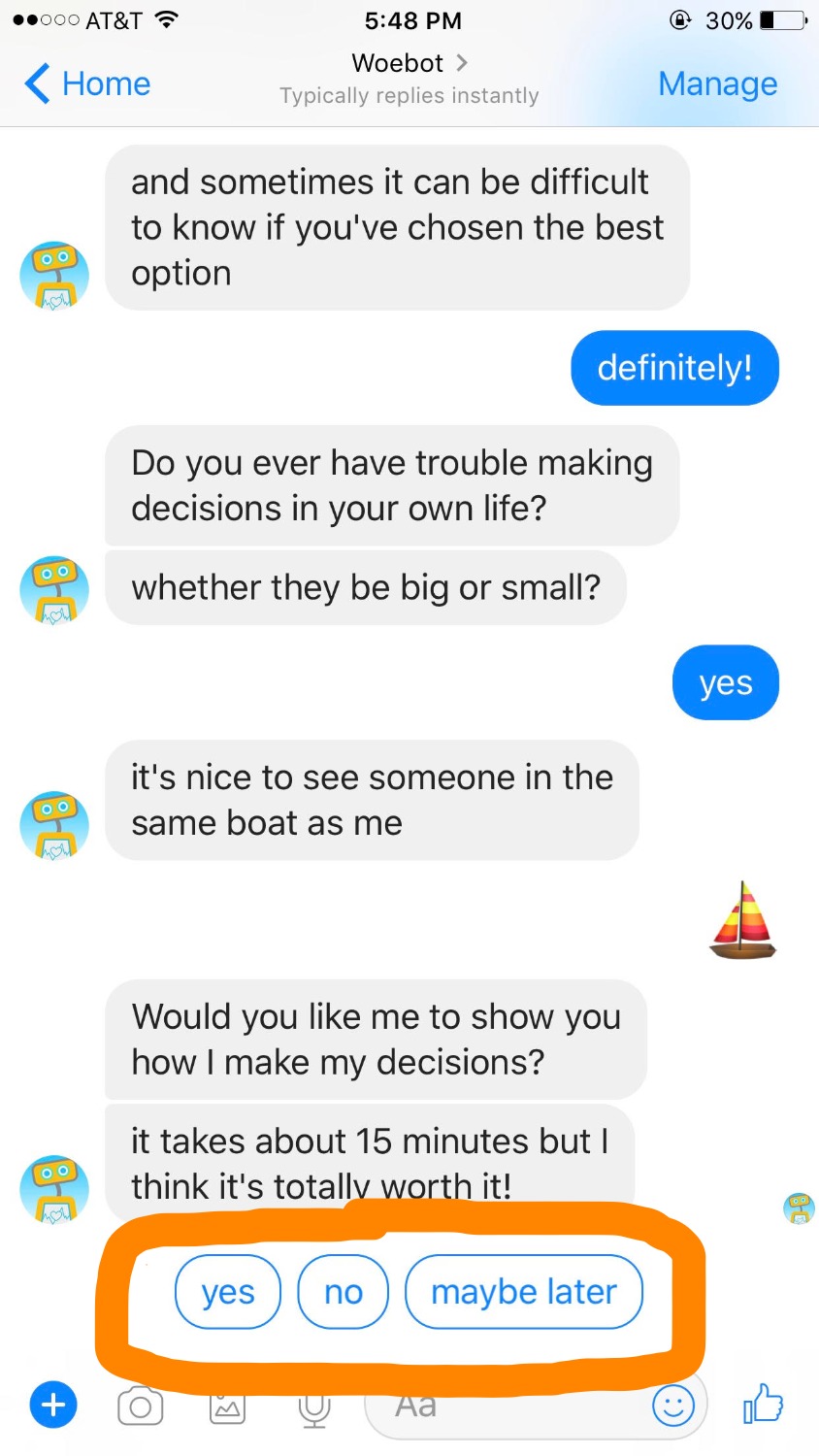
When I was gratitude journaling or identifying my strengths, I was able to type (indicted with little pencil emojies), but Woebot has no idea if I did what it asked. For all it knows, I didn’t take any of the exercises seriously and it would never find out. So being able to hold yourself accountable to Woebot really depends on if you can hold yourself accountable to yourself. Many of us are on the struggle bus together on that one.
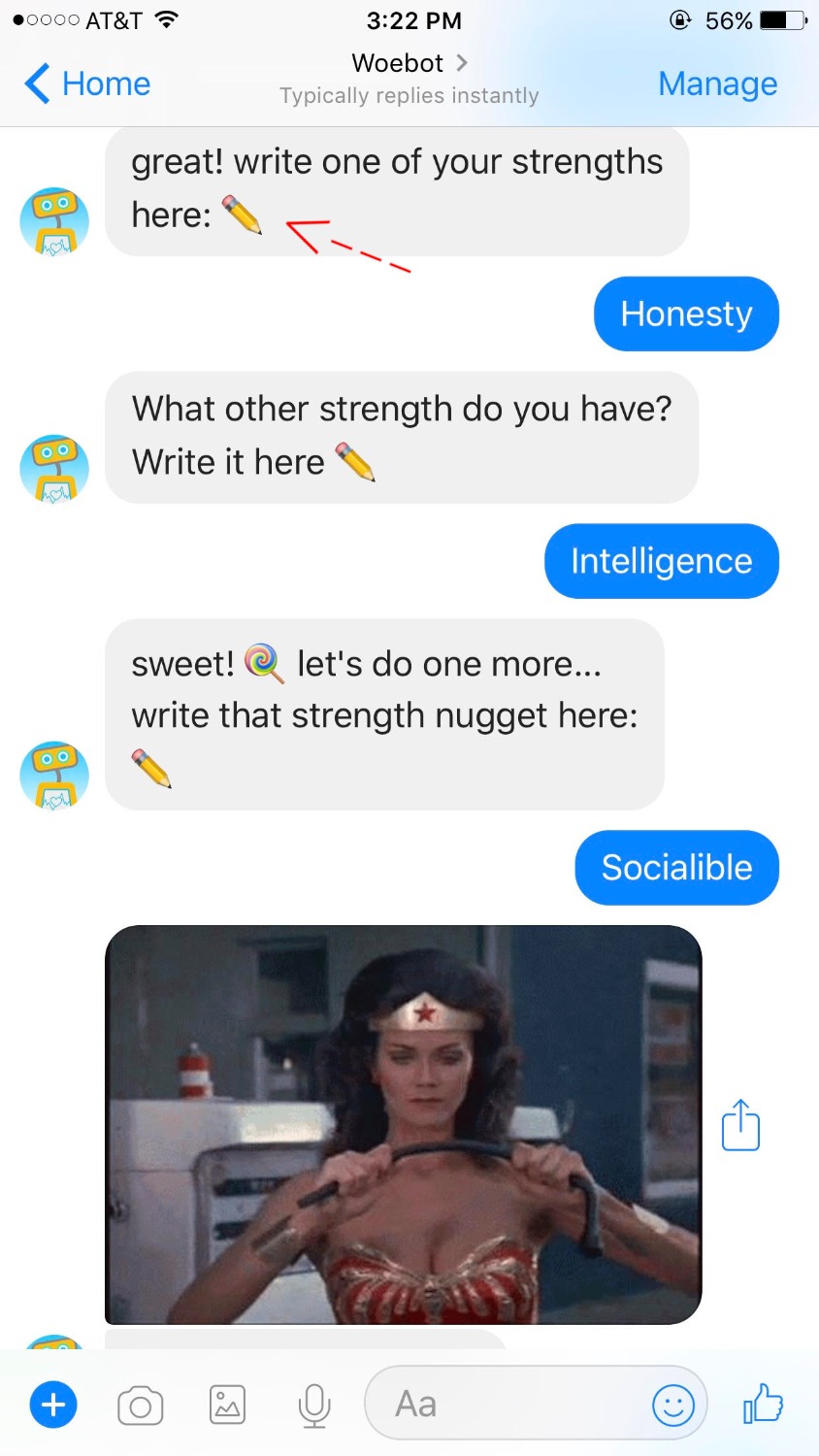
Most importantly, it seemed that if I was in crisis, I had to identify it myself. Woebot explained to me the first day we talked that it is not 100% able to assess my needs and I could say “SOS” at any time and it would send me some resources, but it was never discussed again. Nor did Woebot ever recommend speaking to a human when I said I was depressed or very anxious.
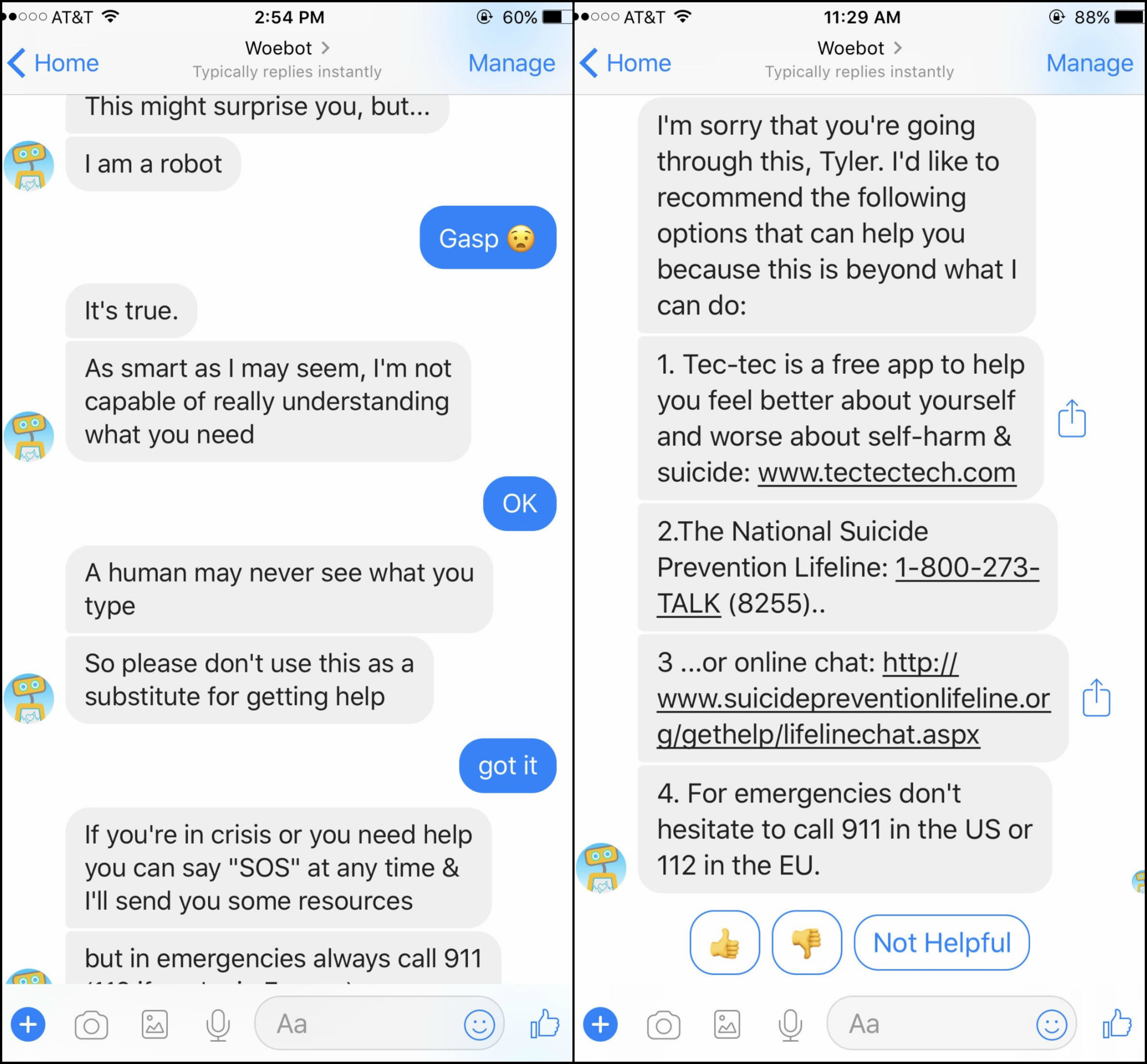
All in all, I liked Woebot a lot more than I thought I would. I particularly enjoyed the video for fixed mindset vs growth mindset and the activity Woebot sent me for making decisions.
With that in mind, Woebot is definitely a resource to be used as a supplement to mental health treatment, not a replacement for it.
It’s a learning resource that allows for little opportunity for expressing yourself and your needs. I will say that I think Woebot should lower its target audience from 18 – 28 years old to middle school age through adulthood. These are skills that children would benefit from learning early and adults benefit from (re)learning later in life.
For my final thoughts, please reach out for help if you need it. Woebot will not replace or give you all the benefits that counseling will give you.
Here are all the video’s that Woebot sent to me. Enjoy.
How to Help Every Child Fulfill Their PotentialWhy You Shouldn’t Trust Your FeelingsEmotions, Stress, and HealthThe Oldest HustleLanguage is Important

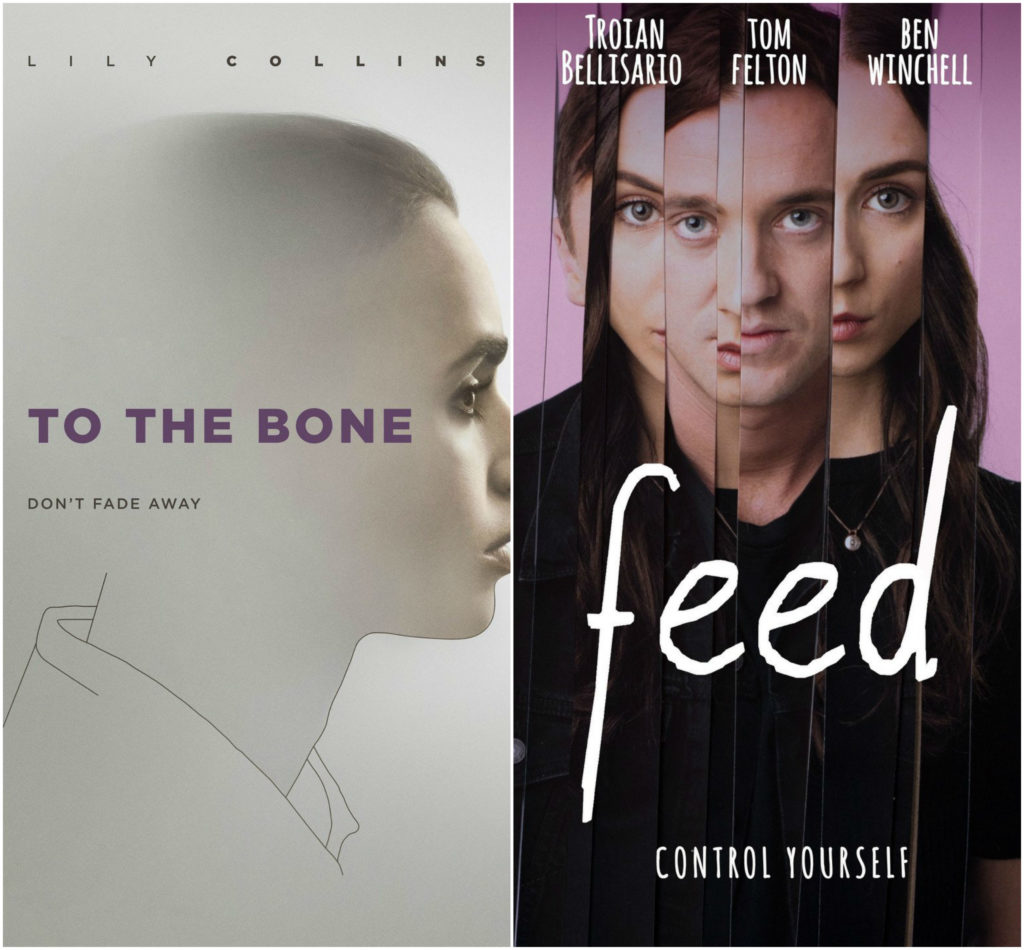
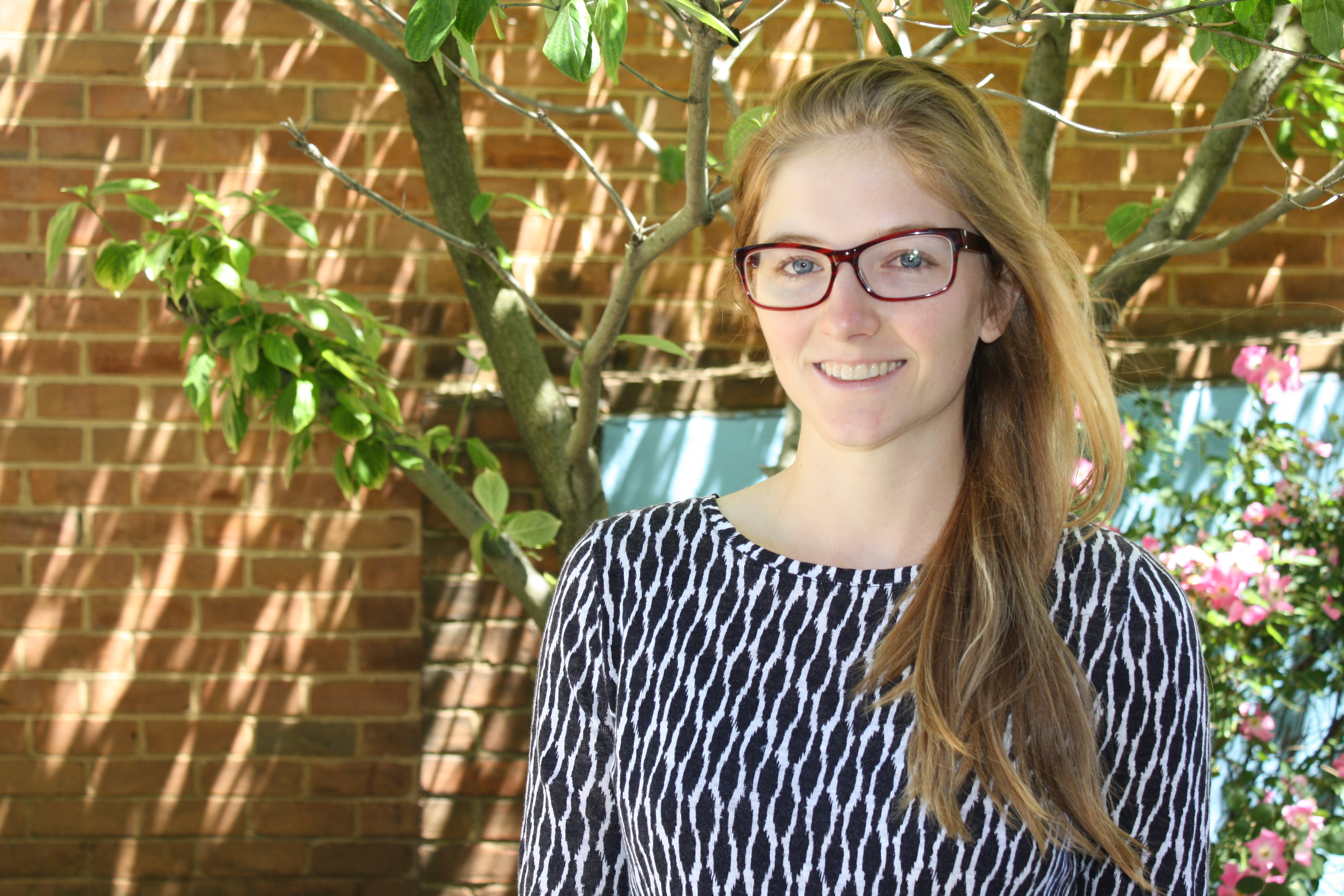
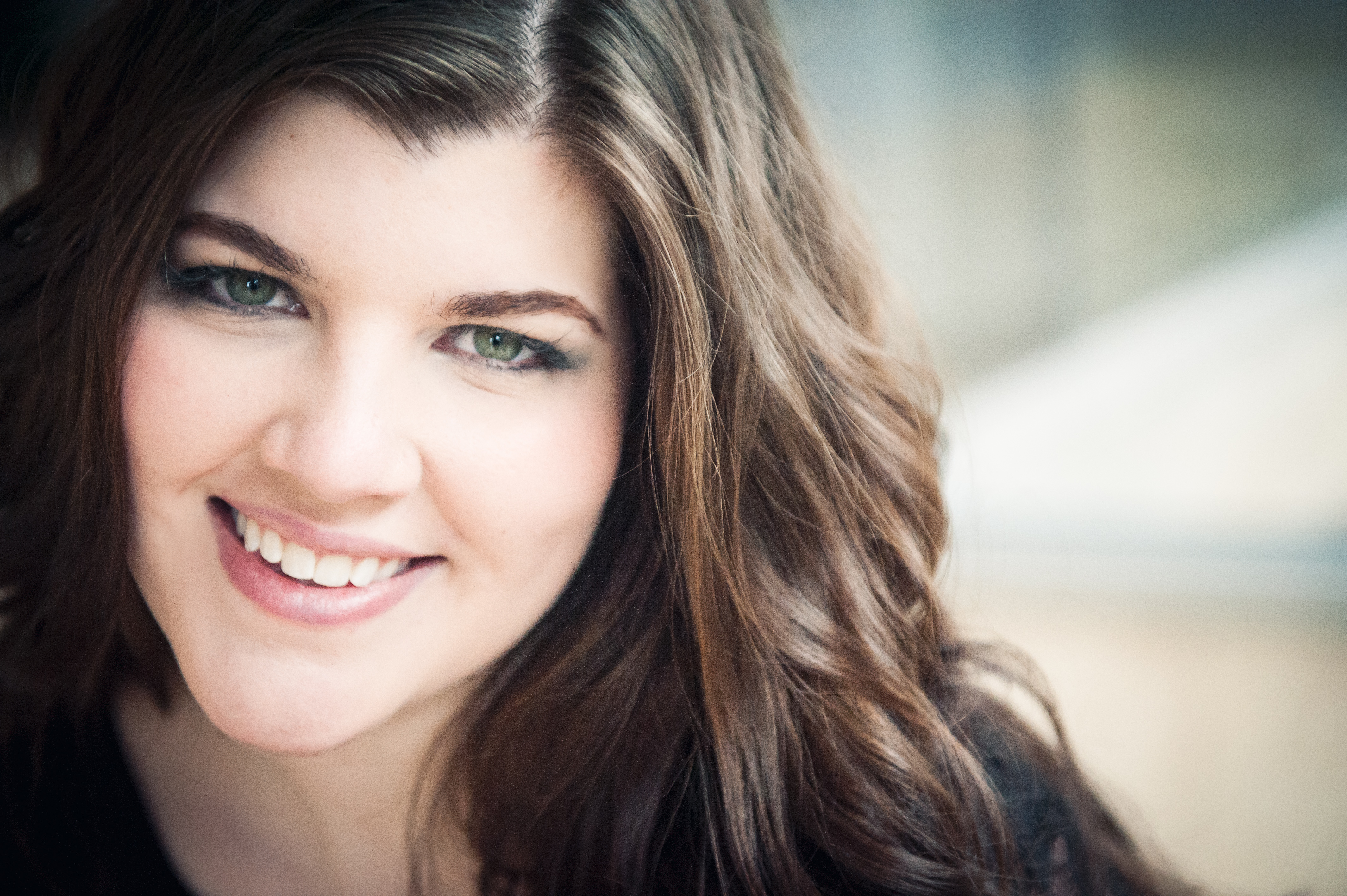
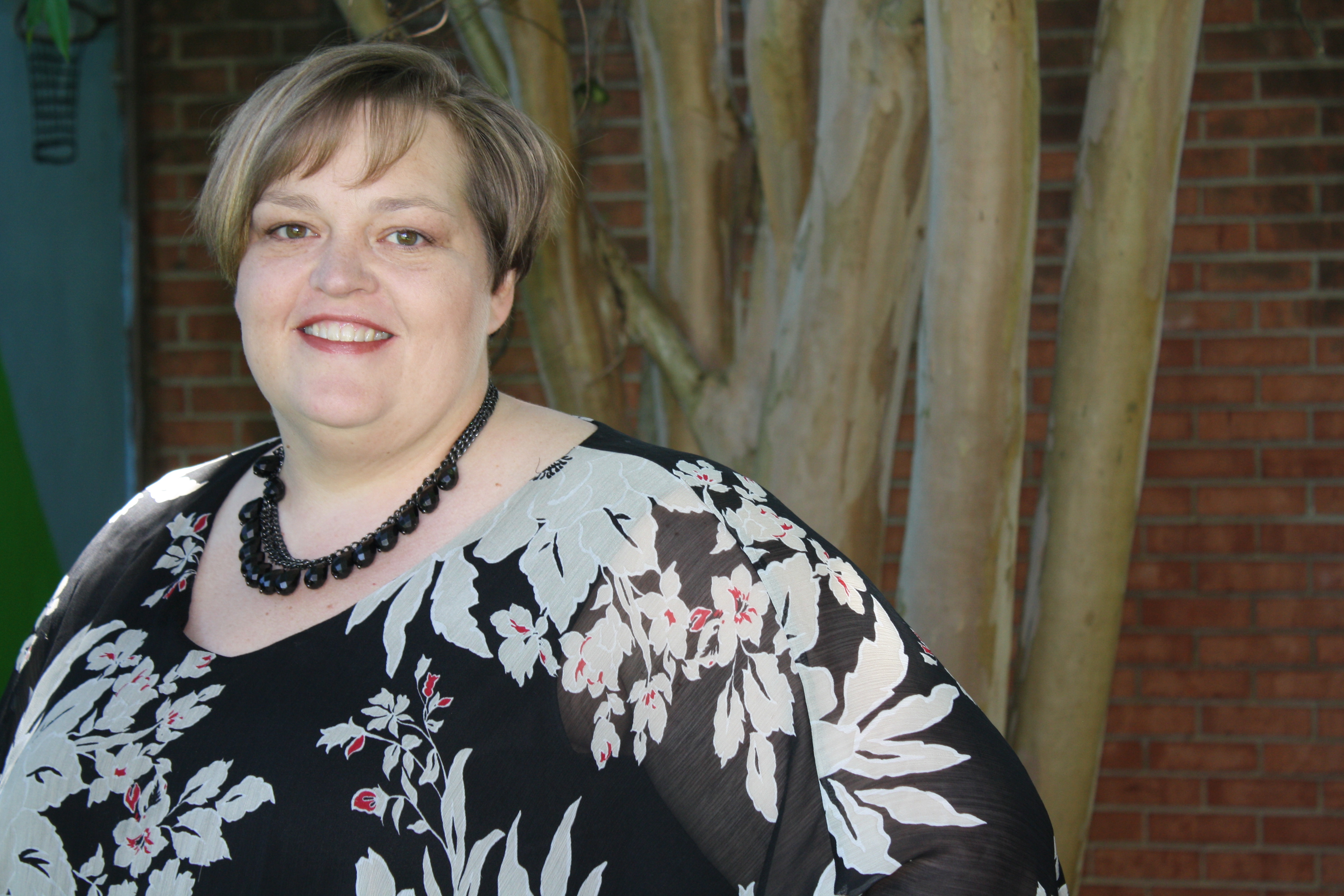
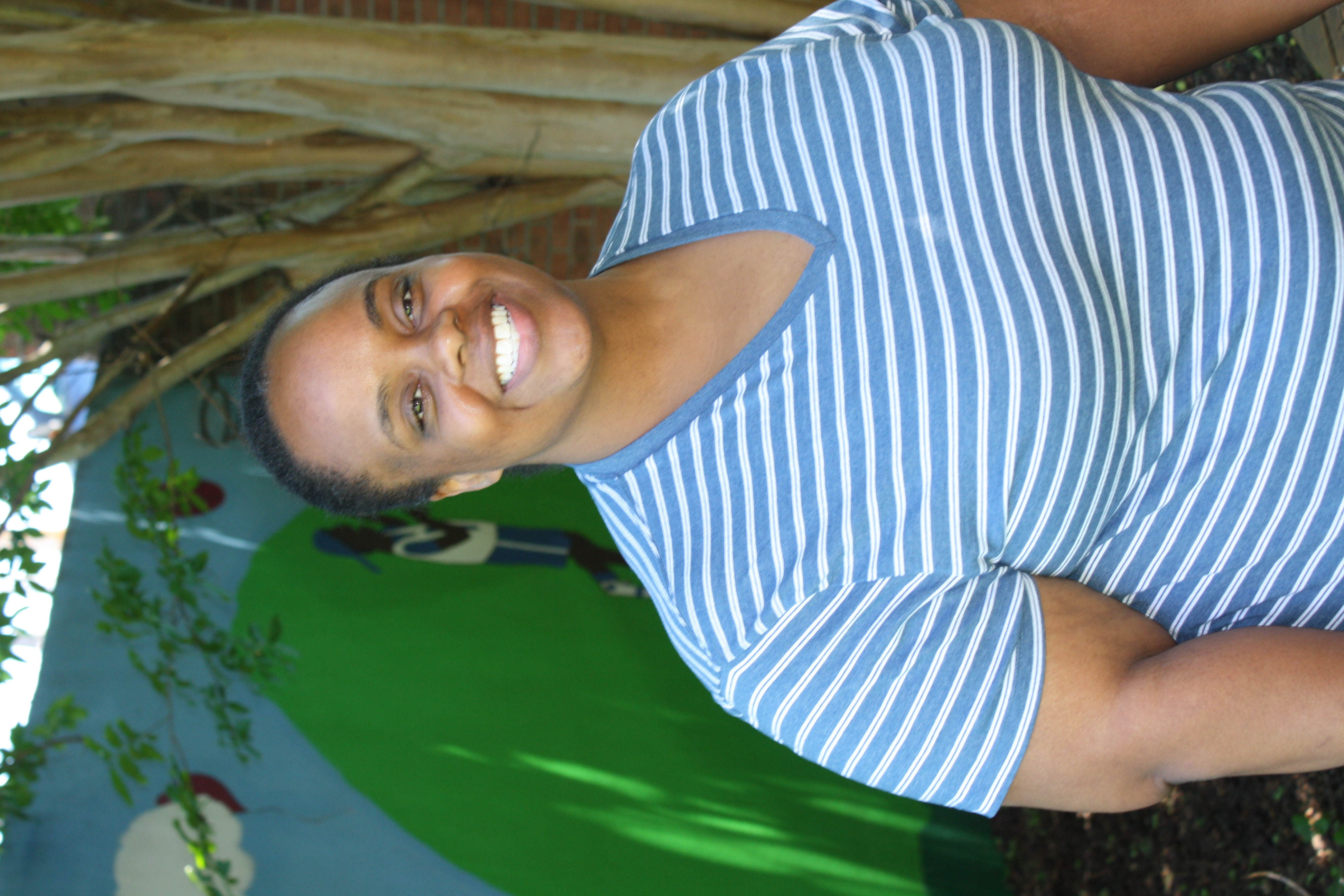
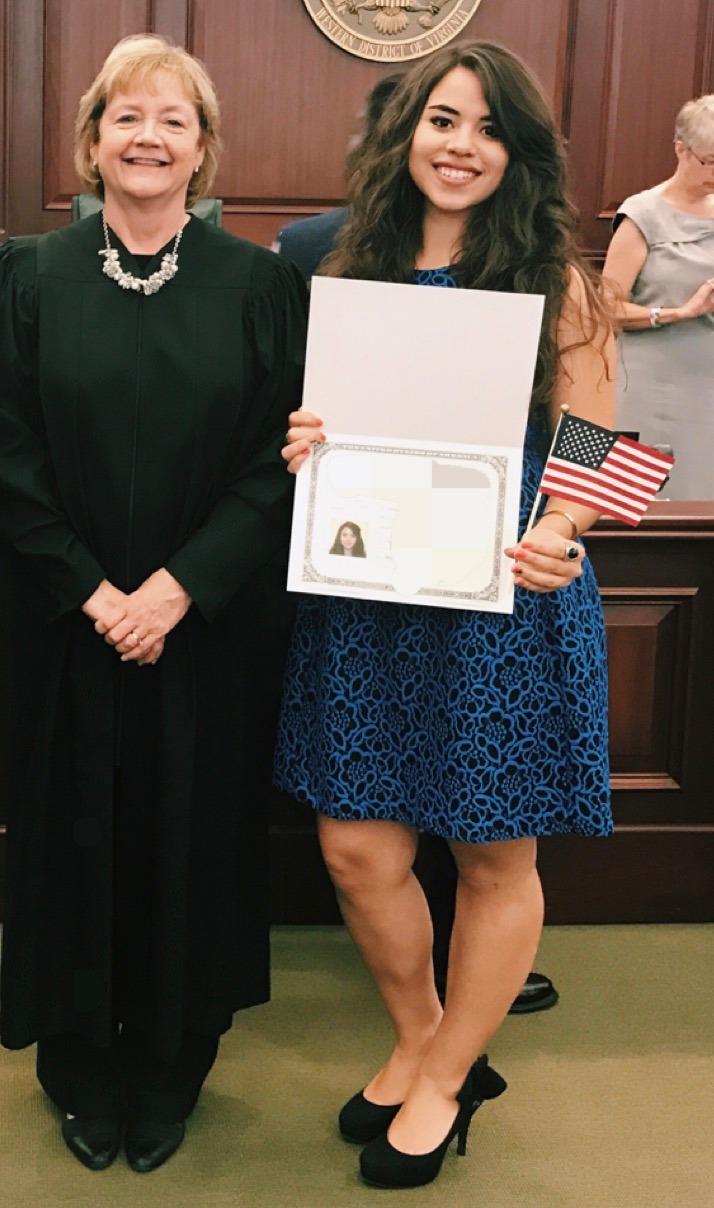
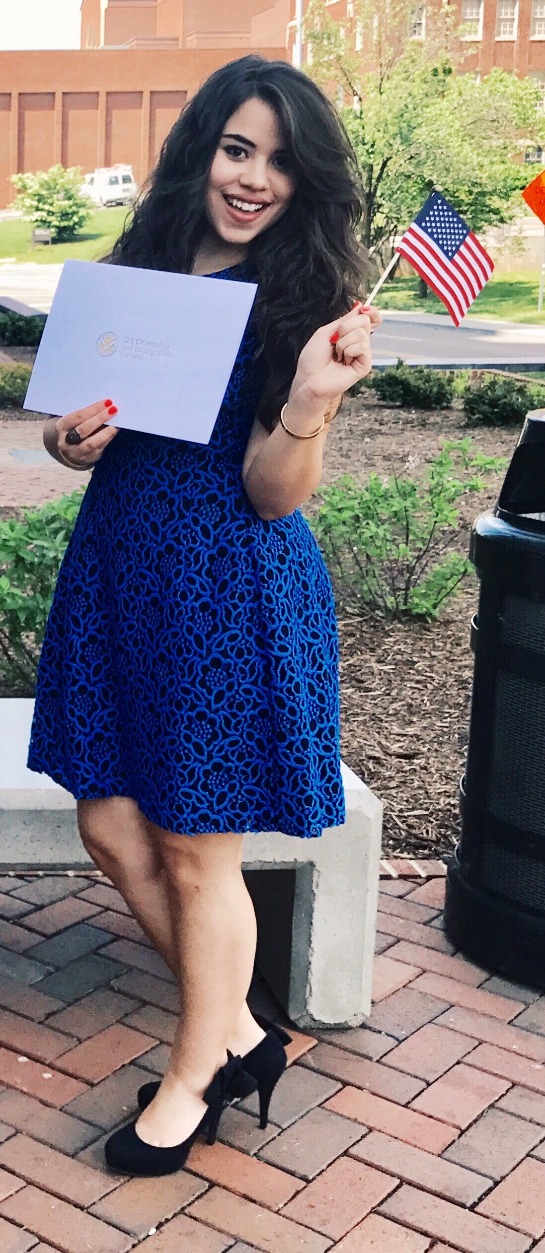
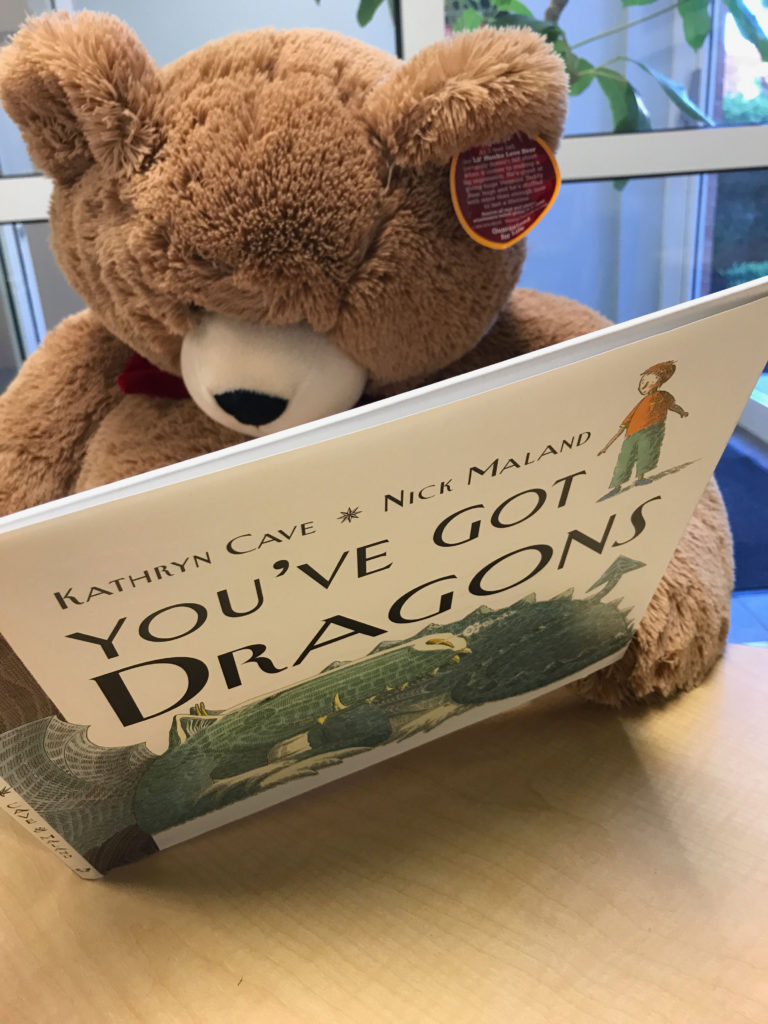
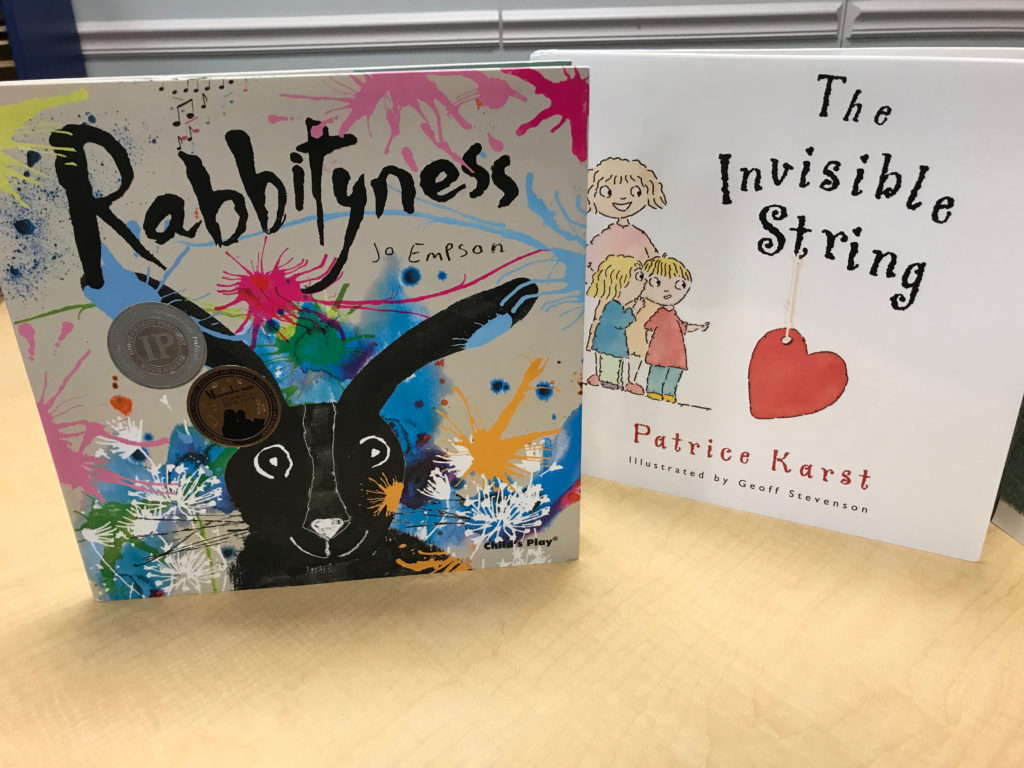
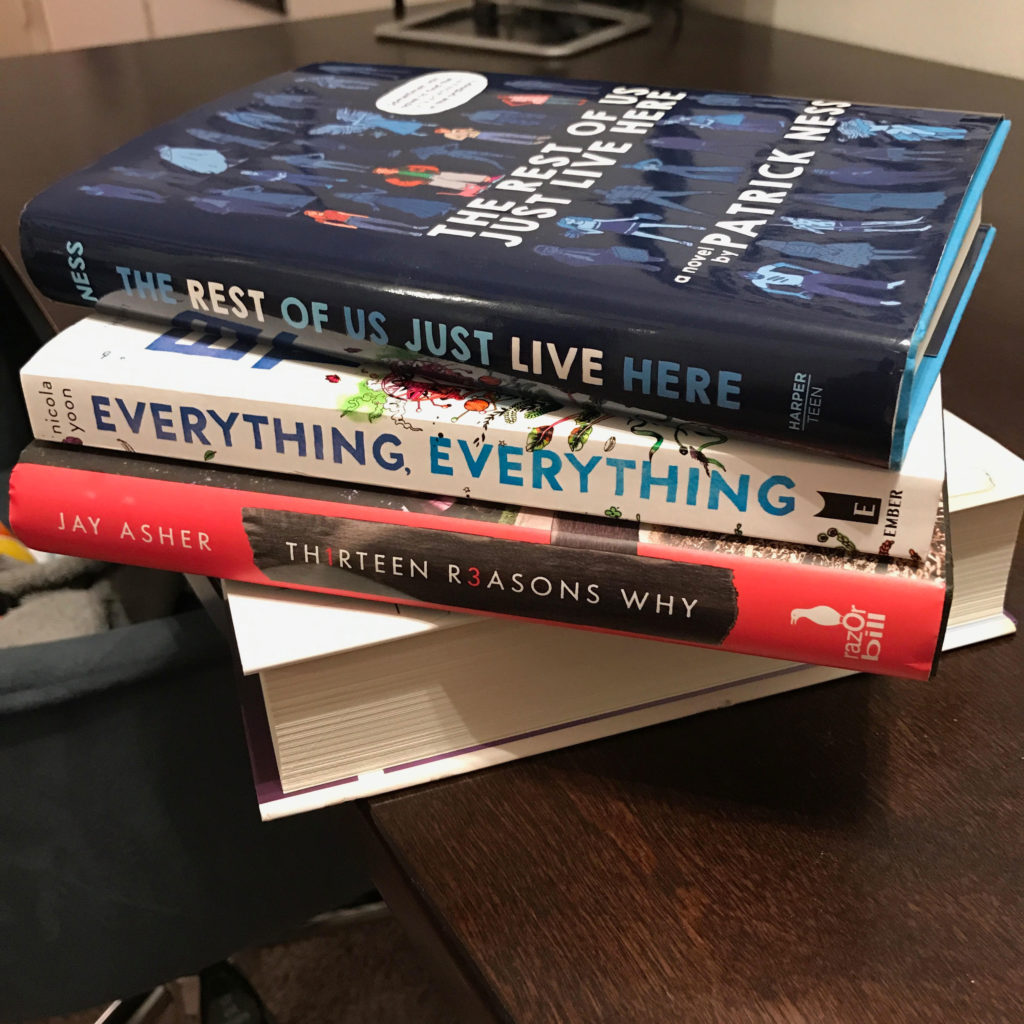

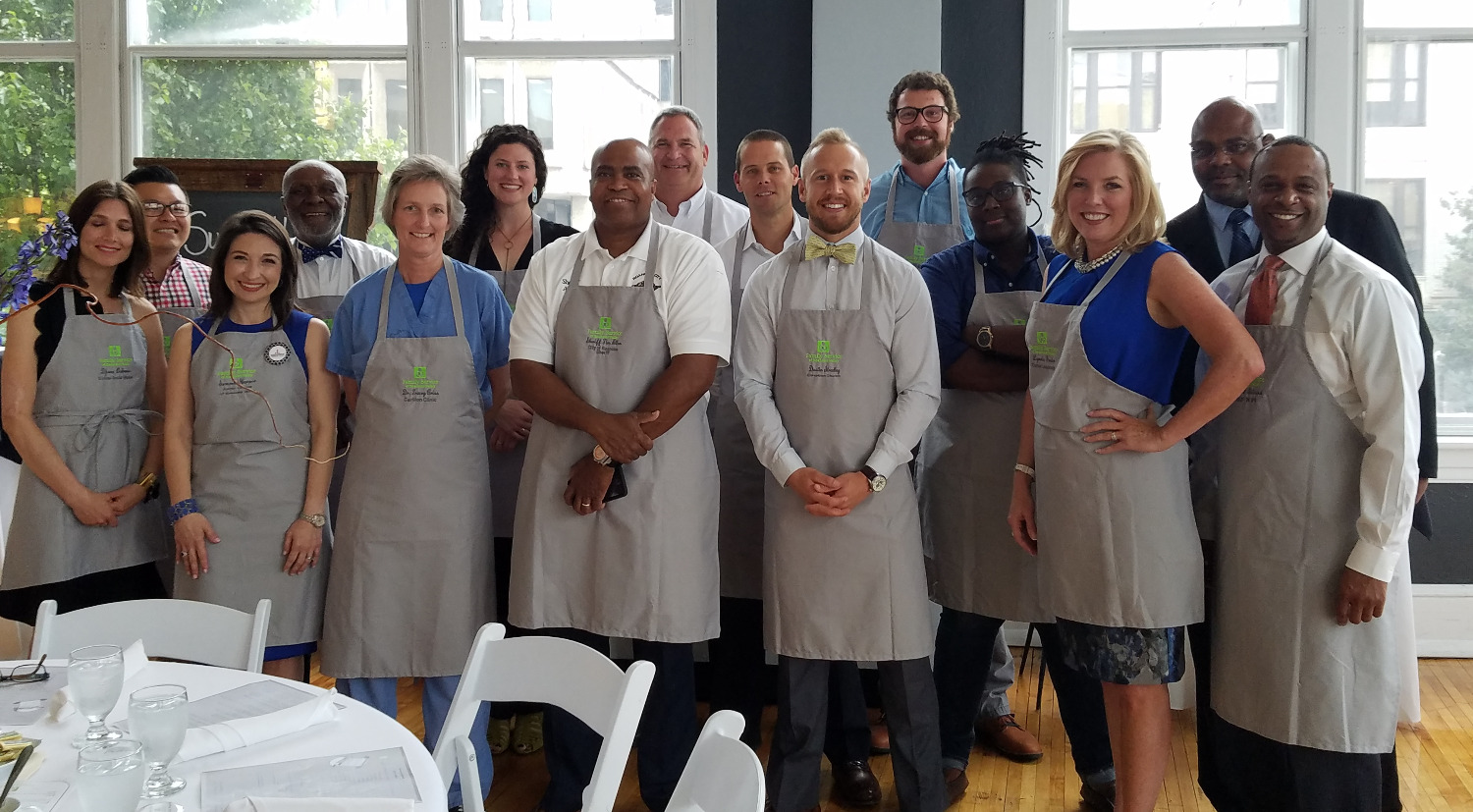 Last night was an amazing night for mental health in the Roanoke Valley!
Last night was an amazing night for mental health in the Roanoke Valley!